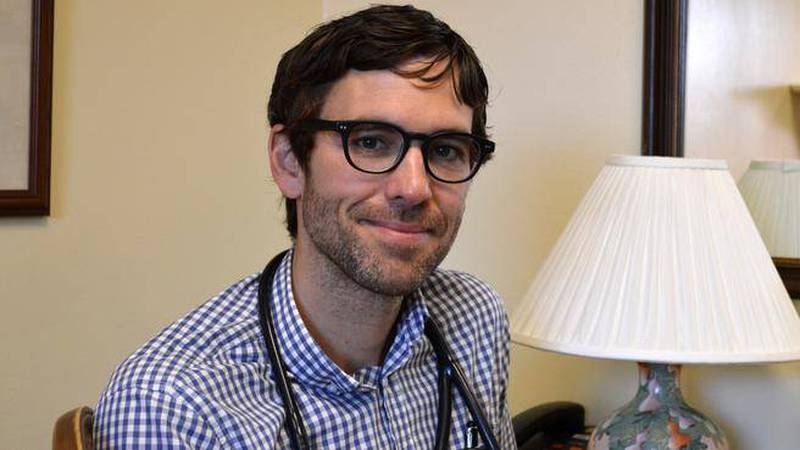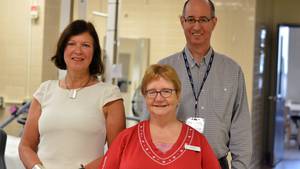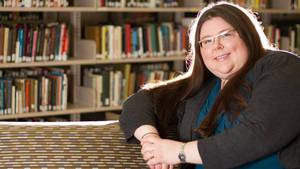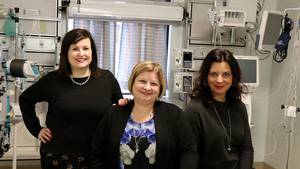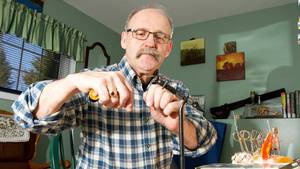While completing his psychiatry residency, Dr. Christian Wiens decided to pursue additional training in palliative care to help patients and families coping with terminal illness. His work with the palliative care team at the QEII brought together his learning about the body and mind — along with his personal and professional experience as a caregiver.
This learner’s unique journey began when he decided to go to medical school after working as a pharmacist for seven years. His interest in palliative care grew while in the University of British Columbia’s MD program, and then expanded during his psychiatry residency with the Dalhousie University Medical School.
“I never believed in the mind-body divide — the brain is part of the body, and I always wanted to continue the physical medicine part of things,” says Dr. Wiens.
“When I took a number of months off from my residency to care for my mother while she was dying from cancer, that personal experience as a caregiver cemented my desire to pursue more training in palliative care. I'm really appreciative of the opportunity I was afforded through the co-operation of the QEII palliative care division and the Department of Psychiatry. I would say this has been the best learning environment I have been in, with excellent mentorship.”
Dr. Wiens worked in all branches of palliative care provided through the QEII, in clinics and at home, and the patients he saw ranged in age from the mid-20s to the late 90s.
“We try to optimize the patient’s quality of life by attempting to relieve suffering — physical, emotional, mental and spiritual suffering — and by offering support,” says Dr. Wiens.
“We work closely as a team to provide this care.”
Palliative care can include medical care to help with pain and other symptoms at home, in hospital or a long-term facility, helping with decisions about treatments, and end-of-life care. The QEII’s palliative care team includes doctors, nurses and professionals in social work, physiotherapy, occupational therapy and music therapy. Spiritual care and a bereavement counsellor also are available to support patients and their families.
“I had a really positive experience in the palliative care department, which is a result of the staff doctors and nurses fostering a really safe and nurturing learning environment,” he says.
Dr. Wiens spent more than a year with the palliative care team at the QEII and broadened his learning by participating in palliative care research.
“All the staff physicians practice evidence-based medicine, and they are always looking for ways to contribute to the body of knowledge available to those working in the palliative community through participation and innovation of research projects both locally and internationally.”
Dr. Wiens also learned from patients and their families.
“It’s really a kind of privileged position to interact with people at the end of life,” he says.
“They are really generous with the wisdom they have acquired over their lifetime. Often they want to share what they have learned even from the illness experience, losing their health and going toward death.”
With his residency ending this fall, Dr. Wiens has taken a joint position at St. Paul’s Hospital in Vancouver, where he will work half of the time as a palliative care physician and half of the time in psychiatry.
The QEII Foundation and the QEII’s palliative care department are working together to establish an Endowed Chair in Palliative Care Research to discover best practices in palliative care for Nova Scotians and to create a patient-focused health system based on sound methods proven through research. There is an opportunity to name this chair in honour or in memory of a loved one. Contact the QEII Foundation at 902 473 7932 to learn more about making this meaningful gift.

